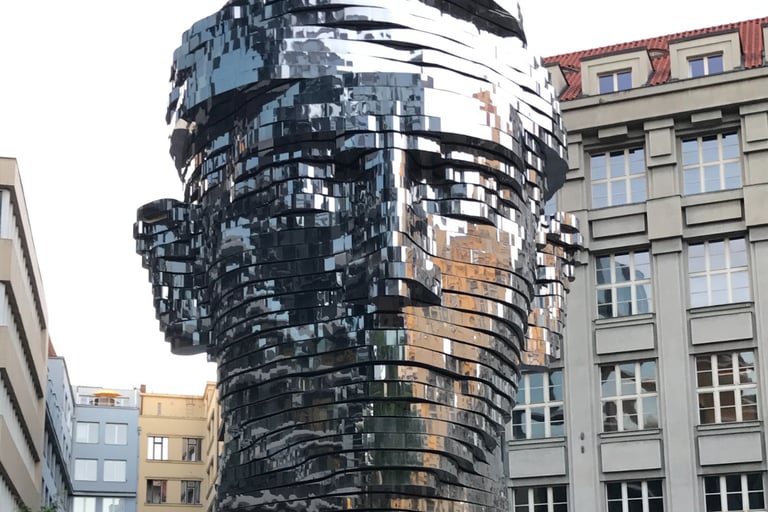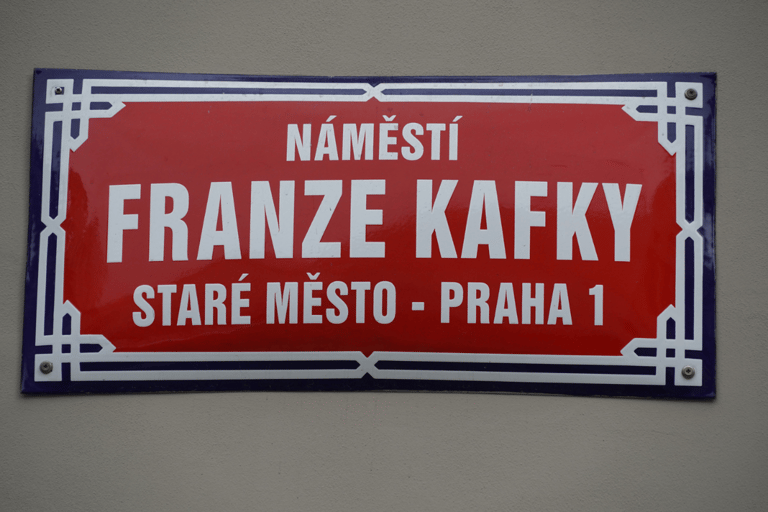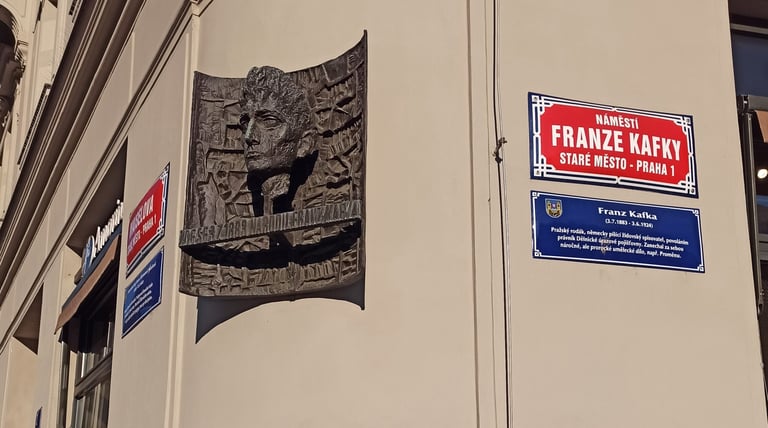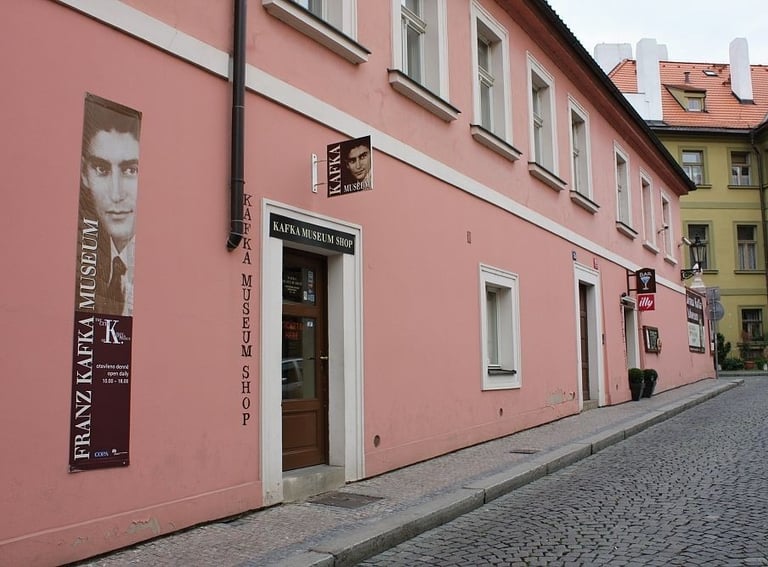Franz Kafka in Prague
Tracing the Life of a Literary Giant
8/17/20252 min read
Few writers are as deeply tied to Prague as Franz Kafka (1883–1924). Born and raised here, Kafka transformed the city’s atmosphere into the backdrop of his haunting and timeless works. Today, visitors can still walk in his footsteps, discovering the places that shaped his life and imagination.
Birthplace and Early Years
Kafka was born on July 3, 1883, in a house on the Old Town Square, near the Church of St. Nicholas. The original building was later reconstructed, but a plaque and small exhibition still mark the spot, reminding visitors of his modest beginnings in the very heart of Prague.
He grew up in a German-speaking Jewish family. His father, Hermann Kafka, was a successful but demanding merchant, while his mother, Julie, came from a wealthier background. Their strict household shaped much of Kafka’s inner struggles, later mirrored in themes of authority, alienation, and identity in his writings.
Education and Work
Kafka studied law at Charles University, earning a doctorate in 1906. He worked for the Workers’ Accident Insurance Institute, where he wrote reports on industrial injuries — a job he performed diligently, though it left him drained. Writing was always his passion, done mostly at night or in cafés.






Literary Life and Key Works
Kafka’s works — such as The Metamorphosis, The Trial, and The Castle — reflect feelings of isolation and the absurdity of modern bureaucracy. While alive, he published only a few pieces, often feeling insecure about his writing. Much of his fame came posthumously, when his friend Max Brod ignored Kafka’s request to burn his manuscripts and instead published them.
Places to Visit in Prague
Kafka’s Birthplace (Old Town Square, House No. 27) – A small exhibition about his life.
Kafka Monument (near the Spanish Synagogue) – A striking modern sculpture by Jaroslav Róna, symbolizing Kafka’s inner duality.
The Kafka Museum (near Charles Bridge, on the Lesser Town side) – An immersive museum exploring his manuscripts, letters, and the surreal worlds he created.
Golden Lane (Prague Castle) – Kafka rented a small house here for a short time to focus on writing. The narrow street still evokes the dreamlike worlds he described.
Cafés like Café Louvre and Café Slavia – Places where Kafka and other Prague intellectuals often met.
Legacy
Kafka’s presence lingers throughout Prague. His works are studied worldwide, yet they remain inseparable from the cobblestone alleys and Gothic towers of the city he called home. Walking through Prague with Kafka in mind, you feel both the weight of history and the strange, timeless atmosphere that inspired him.


contact us
send us e-maıl
info@pagusatravel.com
+420-739-628-000
LEGAL
Terms and conditions
Cancellation policy
COMPANY
Zlin, Czech Republic
All tours and travel packages are designed by PAGUSA s.r.o. and organized by Czechaway s.r.o., members of Asociace cestovních kanceláří České republiky (ACK ČR).
PAGUSA s.r.o.
IČO 221 96 480


